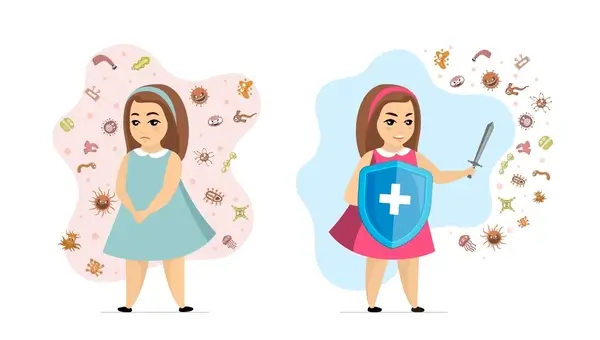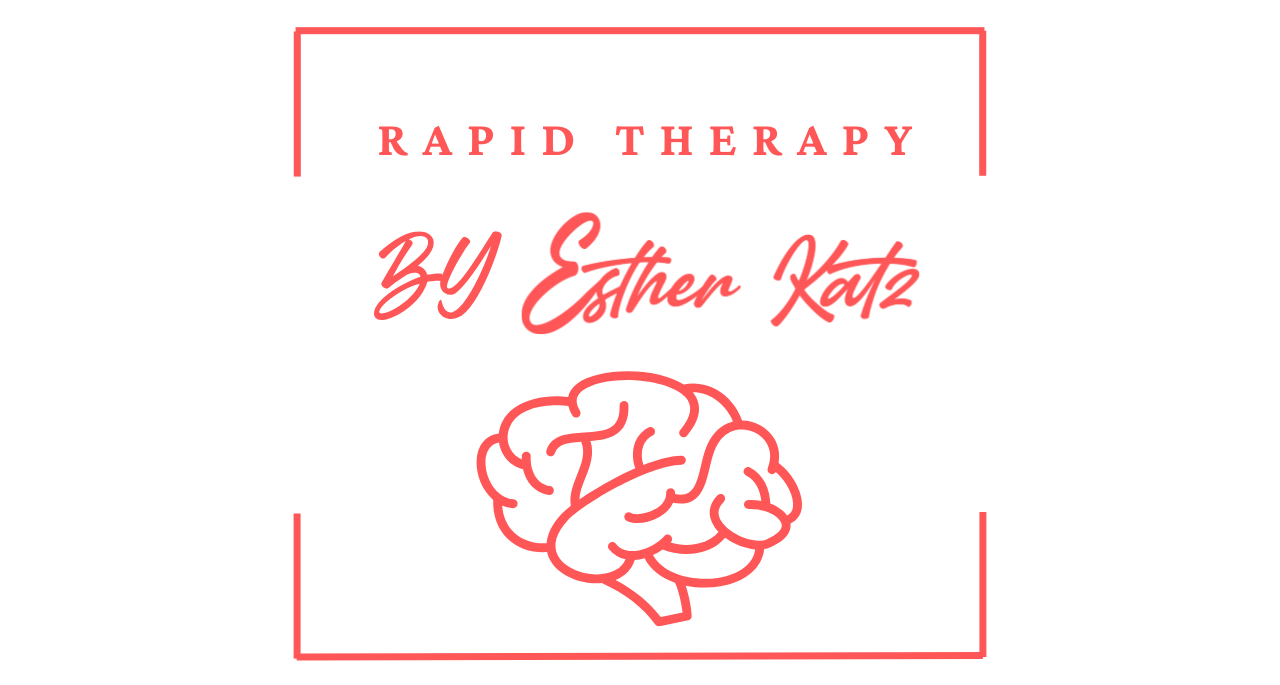Autoimmune diseases like rheumatoid arthritis, lupus, multiple sclerosis, Hashimoto’s thyroiditis, and inflammatory bowel disease (IBD) affect millions of people worldwide. These conditions occur when the immune system mistakenly attacks the body’s own tissues, leading to chronic inflammation, pain, and even organ damage. But what if the roots of these conditions lie much deeper than genetics or immediate environmental factors? Emerging research, including studies on baboons and other primates, suggests that developmental trauma may play a significant role in triggering autoimmune diseases. Coupled with findings from the Adverse Childhood Experiences (ACE) studies, it’s clear that early-life trauma can set the stage for immune dysregulation and autoimmune flare-ups later in life.
Understanding Developmental Trauma and the Immune System
Developmental trauma refers to traumatic experiences occurring during early childhood or developmental years, such as emotional neglect, physical or emotional abuse, and chronic stress. The impact of these adverse experiences isn’t just psychological; it affects physical health, particularly the immune system.

In human studies, particularly those stemming from the Adverse Childhood Experiences (ACE) study, researchers found that individuals exposed to significant trauma early in life are more likely to experience chronic health issues, including autoimmune diseases. ACE scores, which measure the number of adverse experiences an individual has encountered, directly correlate with a higher risk of health problems. Individuals with high ACE scores are more likely to suffer from conditions like lupus, multiple sclerosis, and inflammatory bowel disease, highlighting the deep link between early-life trauma and immune dysregulation.
Insights from Primates:
How Baboons and Other Primates Illustrate the Mind-Body Connection
Observations in primates, especially baboons and macaques, have added a fascinating layer to our understanding of how early-life trauma can predispose individuals to autoimmune conditions.

Social Stress and Immune Function:
Baboons are social animals with complex hierarchies, and the stress of navigating these social structures can have a lasting impact. Studies on baboons reveal that those experiencing high levels of social stress—such as social isolation, loss of a mother, or constant low-ranking status in the troop—show increased immune activity, often leading to inflammation. Chronic inflammation, especially in the absence of an external pathogen, is a hallmark of autoimmune disease. These findings align with human data, where chronic stress is known to affect immune function and potentially trigger autoimmune responses like those seen in rheumatoid arthritis and lupus.
Early-Life Separation and Developmental Impact:
In studies of macaques, infants separated from their mothers exhibited altered immune responses later in life. The loss of a mother or the stress of isolation during formative years disrupted normal immune system development, leaving the primates more susceptible to inflammatory diseases and immune dysregulation as adults. This mirrors findings from human ACE studies, which indicate that maternal loss or early-life trauma can have long-lasting effects on immune health, potentially leading to conditions like multiple sclerosis and type 1 diabetes.

Epigenetic Changes Due to Trauma:
Early-life stress in primates has been linked to epigenetic changes—modifications in gene expression that don’t alter the DNA sequence but can affect immune function. In baboons and other primates, early trauma appears to change how immune-related genes are expressed, potentially making them more prone to autoimmune reactions. This research parallels findings in humans, where early trauma can lead to lasting epigenetic changes, especially in genes involved in immune function, increasing the likelihood of developing diseases like Hashimoto’s thyroiditis and celiac disease.
How the ACE Study Illuminates the Link Between Trauma and Autoimmunity
The Adverse Childhood Experiences (ACE) study, one of the largest investigations into childhood trauma and long-term health, has shown that early-life stress increases the likelihood of autoimmune diseases. Individuals with an ACE score of four or more are twice as likely to develop autoimmune conditions as those with lower scores. The reasons are complex, involving multiple systems in the body, but inflammation driven by chronic stress plays a significant role.
When a child experiences repeated or severe stress, the body releases stress hormones like cortisol and adrenaline. Initially, these hormones help the body cope with acute stress, but when stress is chronic, it can lead to immune dysregulation. This dysregulation can make the immune system more prone to misidentifying the body’s cells as threats, leading to autoimmune attacks on tissues like the joints, thyroid, and even the gut, as seen in Crohn’s disease and ulcerative colitis.

The Accumulative Effect: Why Trauma Builds Over Time
Both primate research and human ACE studies highlight the accumulative effect of trauma. Rather than one isolated event, it is often the repeated, sustained exposure to stress and trauma that leads to immune dysfunction. In baboons, for instance, the daily stress of being a low-ranking member in a troop or the constant exposure to aggressive social interactions causes an ongoing release of stress hormones. This prolonged exposure to stress compromises immune function, making autoimmune responses more likely. In humans, similarly, children who grow up in unstable, stressful environments are more likely to experience chronic inflammation and immune dysregulation.
Practical Implications: Early Intervention and Resilience Building
The implications of these findings are vast and suggest that early intervention could mitigate some of the health risks associated with developmental trauma. Programs aimed at building resilience in children, providing stable and supportive environments, and addressing trauma early could significantly reduce the risk of autoimmune diseases and other chronic health conditions. Similarly, for adults with high ACE scores, strategies such as stress reduction, therapy, and lifestyle modifications could help manage inflammation and support immune health.

For example, mindfulness practices, regular physical activity, and trauma-informed therapy are all interventions shown to reduce stress and inflammation. In primate studies, even small changes in environment and social support can improve immune function, suggesting that humans might benefit similarly.
Take the Next Step Toward Healing: Schedule a Call with Esther Katz
If you’re struggling with an autoimmune disease like rheumatoid arthritis, lupus, Hashimoto’s thyroiditis, Crohn’s disease, or multiple sclerosis, your journey to healing may start by uncovering hidden trauma from childhood. Addressing these root issues can be a powerful step in managing your symptoms and preventing autoimmune flare-ups.
Esther Katz specializes in uncovering developmental trauma and eliminating deeply held beliefs that contribute to autoimmune conditions. Her approach is designed to help you understand the mind-body connection and identify the sources of stress impacting your immune system. Schedule a call with Esther Katz today to learn how her unique therapeutic techniques can guide you toward a path of recovery, resilience, and improved health. Take control of your healing journey by addressing the root causes of your autoimmune condition.
Final Thoughts: Embracing a Holistic Approach to Autoimmunity
The accumulating research on developmental trauma and autoimmunity underscores the importance of a holistic approach to health. By looking at the impact of early experiences on immune function, we gain valuable insights into the origins of autoimmune diseases and the potential for prevention. Both the ACE studies in humans and the findings from baboon studies remind us that our minds and bodies are deeply interconnected. Our experiences, particularly in early life, can shape our physical health in profound ways.
As we continue to study the impacts of trauma on primates and humans alike, we may discover more effective strategies for preventing and managing autoimmune diseases. Healing the effects of developmental trauma might not only improve mental health but also protect against the onset of autoimmune conditions, paving the way for a healthier, more resilient future for all.



